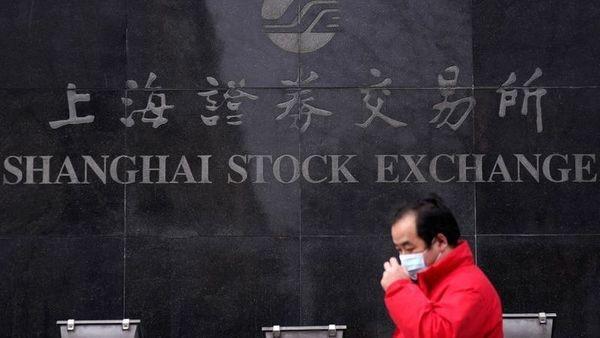This website is strictly for educational purposes and is not intended to provide specific legal, financial, or tax advice. Phil Cannella and Joann Small are licensed professionals in the insurance industry. Crash Proof Retirement, LLC. does not recommend or sell securities to anyone at any time. Any interviews conducted by Retirement Media, Inc ®. published on this website are not to be considered endorsements. Crash Proof Retirement, Crash Proof Retirement Show, and Retirement Media, Inc. ®, and all related uses, are federally trademarked with the United States Patent and Trademark Office. Any company or individual found violating these federal trademarks will be vigorously pursued through all available legal avenues and penalized to the fullest extent of the law. © 2024 Crash Proof Retirement, All Rights Reserved.

Coronavirus Cools Off Investors – For the Moment
- January 31, 2020
- Phil Cannella
- Blog
- 0 Comments
A positive turn for the market slightly reversed losses after the Dow Jones dropped nearly 500 points. Although the market remained relatively calm as the trial for President Trump’s impeachment began, the market started to slide as news of the Coronavirus spread fear among investors.
Originating in Wuhan, the Coronavirus has shut down several cities in China as thousands of cases have been reported worldwide. Multiple cases have been reported in the United States, resulting in the stock market having its worst stretch of days in the new year. The worst coming on January 27, 2020 when the Dow Jones dropped 455.55 points at the opening bell. When the final bell rang, the Dow officially lost 453.93 in value. Pharmaceutical and healthcare stocks saw high volatility in that time as professionals sought to find vaccines to fight off the deadly virus while more cases are being developed in the United States.
The S&P 500 and Nasdaq also felt the effects of the Coronavirus while both saw declines in their market values. In an interesting turn of events, stock investors finally showed signs of anxiety due to the complexity and unpredictability of the virus. While the market continued its trend of not reacting to the news of the day – most notably the impeachment trial – investors balked when the virus entered the United States. Following Monday’s loss, the market regrouped and saw consecutive days of gains before stalling towards the end of the week. It is uncertain what effects the Coronavirus will continue to have on the US and global markets.
At the moment, there has not been significant momentum built up towards fighting off the respiratory virus. Thousands of cases are being developed each day and the death toll continues to rise. Further, there is no indication of when the Coronavirus will be contained, despite multiple cities being shut down in China. The World Health Organization is inching closer to declaring a public health emergency, while United States officials, including President Trump, have discussed limiting travel to and from the United States to China. Additionally, certain airlines and cruises have already shut down travel to and from China to avoid spreading the disease. If travel restrictions are levied to curtail the spread of the virus, travel stocks could be the next group to report significant losses. Global events like this cause uncertainty, and this state of unpredictability has a direct correlation to the volatility in the market and investors should beware.
China, in response to potential volatility, has shut down multiple cities and closed their markets to avoid a major selloff. As investors learn more about the virus strand, the United States Stock Exchange is projected to build on its rebound from Monday’s losses, however there is no guarantee that the rebound will stick. With no clear end in sight for this deadly disease, volatility and market anxiety will remain relevant in the weeks to come.
With high volatility in the market heading towards the end of the week, rebounding from Monday’s drop in value seems unlikely. The spurious correlations that impact domestic and global markets will continue to have a positive or negative effect. As developments continue to be released about the virus and its spread, it is sure to have an effect on the market one way or another. The point however is that no investor can control what happens on the exchange and good days always face the possibility of being followed by poor ones. For investors who are worried about these types of events, there are conservative vehicles available to protect their principal investments. Removing the risk of a volatile market ensures that even a global respiratory virus won’t affect an investor’s nest egg.


Leave a Reply
You must be logged in to post a comment.